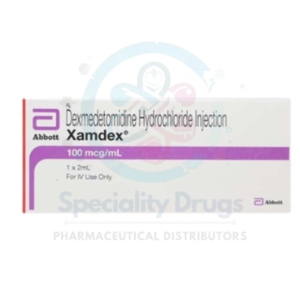What is Baxter Infusion Pump?
An Infusion Pump is a medical device designed to deliver fluids, such as nutrients and medications, into a patient’s body in controlled amounts. It is an essential tool in healthcare settings, ensuring precise and continuous administration of intravenous treatments. Infusion pumps are commonly used in hospitals, clinics, and home care environments.
What is the Use of a Baxter Infusion Pump?
Infusion Pumps are used for a variety of medical purposes, including:
- Administering Medications: They provide controlled delivery of drugs like antibiotics, chemotherapy agents, and pain relievers.
- Hydration Therapy: Used to maintain fluid balance in patients who are unable to drink fluids orally.
- Nutritional Support: Delivering essential nutrients to patients who cannot eat by mouth.
- Blood Transfusions: Ensuring the accurate flow of blood products to patients.
- Anesthesia Delivery: Providing precise doses of anesthetics during surgeries.
Benefits of a Baxter Infusion Pump
- Precision: Infusion pumps allow for accurate dosing of medications and fluids, reducing the risk of under or overdosing.
- Consistency: Ensures a constant and controlled flow of medication, which is critical for treatments requiring steady drug levels.
- Versatility: Suitable for a wide range of fluids and medications, making them adaptable to various medical needs.
- Programmability: Advanced models can be programmed to adjust the flow rate and timing, allowing for complex treatment regimens.
- Safety Features: Modern infusion pumps come with alarms and safety checks to alert healthcare providers to issues like blockages or empty reservoirs.
Side Effects of Using a Baxter Infusion Pump
While infusion pumps are generally safe, there are potential side effects and risks associated with their use, including:
- Infection: The insertion site for the infusion can become infected if not properly maintained.
- Mechanical Failure: Malfunctions in the pump could lead to incorrect dosages or interruption in therapy.
- Air Embolism: Air bubbles in the infusion line can cause complications if they enter the bloodstream.
- Phlebitis: Inflammation of the vein at the insertion site can occur, causing pain and discomfort.
- Fluid Overload: Excessive administration of fluids can lead to fluid overload, especially in patients with heart or kidney conditions.
Important Considerations
- Regular Monitoring: Patients using an infusion pump require regular monitoring to ensure the device is functioning correctly and the treatment is effective.
- Professional Supervision: Infusion pumps should be set up and monitored by healthcare professionals to minimize risks.
- Maintenance: Routine maintenance and checks are essential to ensure the pump’s reliability and safety.
Conclusion
Infusion Pumps are indispensable in modern healthcare, providing precise and reliable delivery of medications and fluids. They play a crucial role in patient care, particularly for those requiring continuous and controlled treatment regimens. While they come with certain risks, their benefits in ensuring accurate and consistent drug administration make them vital tools in medical practice. Always consult with healthcare professionals to ensure the safe and effective use of infusion pumps for your treatment needs.
s
Frequently Asked Questions About Baxter Infusion Pumps
- What is a Baxter Infusion Pump?
An infusion pump is a medical device that delivers fluids, medications, or nutrients into a patient’s body at a controlled and precise rate. It is often used in hospitals, clinics, and even home settings.
- How does a Baxter Infusion Pump work?
There are different types of infusion pumps, but generally, they use a pump mechanism to push medication or fluids from a reservoir through a thin tube (catheter) into the patient’s body, often via a vein. The pump can be programmed to deliver the medication continuously over time or in specific intervals.
- What are the different types of Baxter Infusion Pumps?
There are several types of infusion pumps, each suited for different purposes. Some common types include:
- Syringe pumps: Use a syringe to deliver small volumes of medication precisely.
- Volumetric pumps: Deliver a specific volume of fluid based on programmed settings.
- Elastomeric pumps: Use a collapsible reservoir to deliver medication.
- Patient-controlled analgesia (PCA) pumps: Allow patients to self-administer pain medication within prescribed limits.
- What are the benefits of using a Baxter Infusion Pump?
Infusion pumps offer several benefits:
- Precise delivery: Ensures accurate and consistent medication or fluid delivery over time.
- Reduced risk of errors: Minimizes the risk of accidentally giving too much or too little medication.
- Improved patient comfort: Allows for continuous or on-demand medication delivery, improving comfort.
- Ambulatory use: Certain pumps allow for medication delivery even when patients are mobile.
- Who needs a Baxter Infusion Pump?
Many patients can benefit from infusion pumps, including those who require:
- Pain medication after surgery
- Chemotherapy drugs to fight cancer
- Insulin for diabetes management
- Intravenous fluids for hydration
- Nutritional supplements
- How are infusion pumps programmed?
Infusion pumps are programmed by healthcare professionals to deliver specific medication types, volumes, and flow rates based on the patient’s individual needs.
- Are Baxter Infusion Pumps safe?
Infusion pumps are generally safe when used properly by trained medical professionals. However, as with any medical device, there can be risks of malfunctions or incorrect programming.
- How are Baxter infusion pumps maintained?
Infusion pumps require regular maintenance and cleaning to ensure proper functioning and prevent contamination.
- Can I use a Baxter infusion pump at home?
In some cases, patients can use infusion pumps at home with proper training and supervision from healthcare providers.
- What should I do if my infusion pump malfunctions at home?
If you suspect a malfunction with your home infusion pump, discontinue use immediately and contact your healthcare provider or medical equipment supplier for assistance.










Reviews
There are no reviews yet.